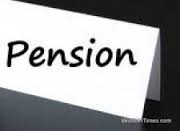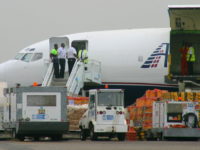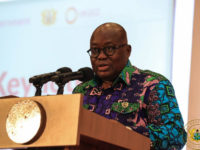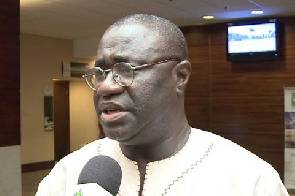By Sulemana Braimah, Executive Director, Media Foundation for West Africa.
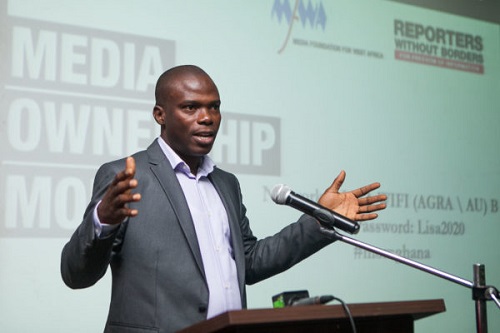
Sulemana Braimah; Executive Director of the Media Foundation for West Africa
Over the last two decades, the number of media organisations and persons working as journalists in Ghana have more than tripled. This is not surprising giving the expansive safeguard provisions and freedoms granted the mass media in Ghana’s 1992 Constitution. Indeed, the first four clauses of Article 162 of Chapter 12 of the Constitution, which is about Media Freedom, are all about unequivocal guarantees of freedoms for the mass media.
Article 162(1) explicitly guarantees independence and freedoms of the media. Clause 2 of the Article forbids censorship while Clause 3 prohibits the existence of any obstacles to the establishment of any type of mass media. Clause 4 protects editors and publishers from any form of interference or control by a government, and also shields such editors and publishers from any punishment for their editorial views, opinions or content. The provisions are explicit and unambiguous.
Clause 5 of Article 162, then provides some reason for the expansive guarantees of media freedom. This is where the important role of the media in the service of the democratic enterprise that the Constitution establishes, is assigned. Even in assigning the role, the Constitution re-echoes the freedoms guaranteed the media by asserting that the media shall be free in the performance of the assigned role.
The said provision of Clause 5 of Article 162 state that “All agencies of the mass media shall, at all times, be free to uphold the principles, provisions and objectives of this Constitution, and shall uphold the responsibility and accountability of the Government to the people of Ghana.”
Giving the elaborate constitutional guarantees of freedoms and the consequent exponential growth in number and types of mass media as well as journalists; many expect to see a commensurate improvement in the watchdog role of the media in fulfillment of the Constitutional obligation.
But paradoxically, while the media landscape grows and expands, the critical watchdog role of the media continues to dwindle. This may be surprising but reasons are not far-fetched.
One of the critical requirements for watchdog journalism to thrive is an environment in which journalists are not just free and safe to do critical reporting but one in which they actually feel free and safe to do so. In other words, an environment that is filled with attacks, acts of intimidation, harassment, threats and other forms of abuses against journalists is not the type that fosters the type of journalism the Constitution requires Ghanaian journalist to do.
Unfortunately, the media environment in Ghana is increasingly becoming one that is characterised by the very hazardous features that constrict the type of journalism that will fulfil the constitutional obligation espoused by Article 162(5). Attacks, intimidation, threats, harassment and other forms of abuses against journalists have become very common.
In the last four years (2017 to 2020), the Media Foundation for West Africa (MFWA) has documented 56 separate incidents of media rights violations involving more than 65 victims. This translates into an average of more than one incident of violation per month. Many of the violations have be in the form of attacks on journalists and media organisations.
Sadly, state authorities have often shown little or no interest in investigating such crimes against the media. Offenders are not punished. The result has been a growing culture of impunity for crimes against journalists.
As a result of the deteriorating press freedom context, critical watchdog journalism is becoming, or has in fact, become a risky enterprise. It takes a combination of sheer courage, true love for good journalism, and a rare sense of patriotism to continue to pursue the kind of journalism required of journalists by the Constitution – the type of journalism that holds the powerful responsible and accountable to the powerless.
The situation needs to change or be changed. One thing must be clear to all: doing critical journalism that exposes wrongdoing, highlights societal challenges and holds those in authority accountable, is actually an exercise in fulfilment of a Constitutional obligation imposed on all journalists (not some journalists) and at all times (not sometimes). Such journalism must actually be seen and be made the norm and not the exception.
It is important to emphasise that the Constitution of Ghana requires the media to hold “the government” responsible and accountable to the people of Ghana. There must be a reason why the Constitution specifically mentions “the government” and did not add “and or the opposition.”
The framing of the Constitutional obligation of journalists under Article 162(5) should be an adequate and satisfactory answer to those who continue to accuse the few journalists who remain loyal to critical journalism of only focusing on the government of the day.
Such accusers often say such journalists are bias against the government of the day because they do not focus on the opposition as much as they focus on the government of the day. Well, the Constitution says, journalists shall hold “the government” (the group that collects our taxes, manages our national assets and resources, and manages the affairs of the nation) responsible and accountable to the people of Ghana at all times.
So, dear politician and party foot soldier, please understand that journalists who strive to hold the feet of government (any government) to the fire at all times, are simply fulfilling a constitutional obligation. Such journalists commit no crime. In fact, to choose or opt not to hold a government responsible and accountable to the people of Ghana at all times, as a journalist, constitute a gross neglect of a Constitutional obligation.
What is important though, is that the fulfilment of the constitutional obligation to hold a government responsible and accountable to the people, must not be discriminatory and selective. Critical, independent-minded journalists must perform that constitutional duty to the fullest regardless of the government in power.
Any government that is truly and honestly committed to democratic values, must take all the necessary steps to promote and protect critical journalism; the type of journalism that does no public relations or praise-singing for a government. A truly democratic government is the one that appreciates and sees critical reporting and exposure of wrongdoing by journalists as a worthy democratic service.
Let’s protect journalists who remain committed to critical, watchdog reporting.
